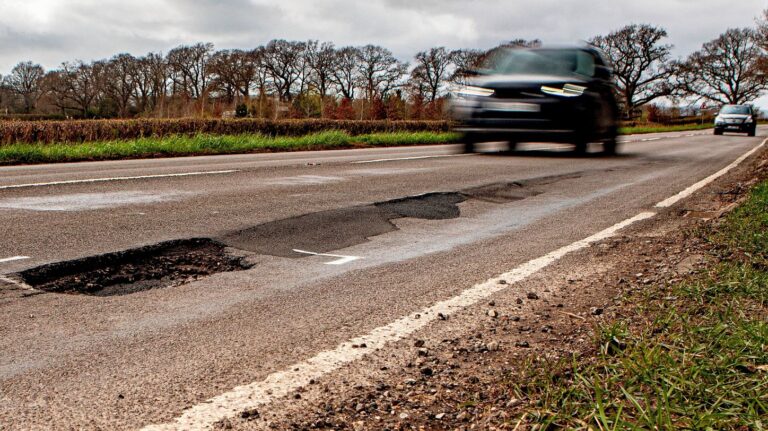The UK government has announced a £1.6bn investment to repair roads and tackle potholes across England in 2025-2026.
The funding, which represents a nearly 50% increase in local road maintenance budgets from the previous year, is expected to enable councils to repair the equivalent of seven million additional potholes.
UK transport secretary Heidi Alexander described the initiative as a “record investment” that would “start to reverse a decade of decline on our country’s roads”.
She added: “Millions will drive home for Christmas today, but too many will have to endure an obstacle course to reach their loved ones.
“Potholes damage cars and make pedestrians and cyclists less safe. We are investing £1.6bn to fix up to seven million more potholes next year.”
The funding is part of the government’s broader ‘Plan for Change,’ which aims to support local communities, improve living standards, and stimulate economic growth.
Councils across England will receive a £500m uplift in funding, allowing local authorities to prioritise repairs on the most damaged roads in their areas.
Notable regional allocations include more than £327m for the north west, north east, and Yorkshire and Humber, as well as £322m for the south east and London.
The initiative is in response to growing public frustration with the state of local roads.
Data from the RAC reveals that drivers encounter an average of six potholes per mile in England and Wales, with repair costs for pothole damage averaging £500 per vehicle.
Surveys from the AA suggest that 96% of drivers consider fixing potholes a key priority.
The government’s plan also includes measures to encourage proactive road maintenance.
Local authorities will be required to collect better data on the state of their road networks, with 25% of the uplift in funding being contingent on demonstrating effective use of the funds.
Additionally, 50% of surplus revenue from lane rental schemes – which charge utility companies for occupying roads during street works – will be reinvested in highway maintenance.
A crackdown on poor street works is also part of the plan. The government will double fixed penalty notices for utility companies that fail to comply with regulations and extend charges for street works that continue over weekends.
Further devolution of powers is under consideration, with local mayors potentially gaining authority to approve lane rental schemes, currently a power reserved for the Secretary of State.
The response from motoring and transport organisations has been largely positive. Simon Williams, head of policy at the RAC, welcomed the announcement, calling it “the biggest one-off road maintenance funding settlement councils in England have ever been given”.
He added: “We have high hopes it’s the turning point that ends the degradation of our roads and finally delivers fit-for-purpose, smooth surfaces for drivers and all other road users.”
Edmund King, president of the AA, urged councils to focus on “permanent and innovative repairs rather than adopting a ‘patch and run’ approach”.
King also welcomed measures to clamp down on poor street works, noting that “better maintenance of the road network is the number one concern of drivers as damage costs a fortune and potholes can be fatal for those on two wheels”.
The £1.6bn investment forms part of a wider strategy to support councils in delivering essential local services.
In total, £69bn of funding will be allocated to councils across England to drive forward the government’s ‘Plan for Change,’ with the goal of supporting economic growth, improving living standards, and strengthening community infrastructure.





